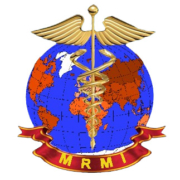©2016-2025, made by Fredrik Moström.
The MRMI-course
Medical Response to Major Incidents & Disasters
The MRMI-course is a standardized course under protected name with the aim to teach and train the response to major incidents and disasters.
The international MRMI-courses are based on a standardised organisation and methodology according to the principles most commonly used in the European countries.
The national MRMI-courses, have the same course-design and educational technique, but organisation and methodology may in relevant parts be adapted to national standard, and the course language may be native.
History
The course was developed 2009 by a group of international experts in the Disaster & Military Surgery Section within ESTES (European Society for Trauma and Emergency Surgery).
From 2009 – 2025 more than 10 000 participants from 30 countries have been trained at 14 international MRMI-centers. The accuracy of the educational methodology for major incident response has been scientifically validated in a published study including a large group of trainees from many different countries.
Ownership
The MRMI courses are owned by the International MRMID Association, a non-profit organisation with the aim to promote education and training of the response to major incidents and disasters.
Permission to organise a course has to be requested from the Association and can only be given to certified MRMI- instructors. The MRMID Association is responsible for development of methodology, quality assurance, coordination of instructor training and recruitment and certification of international instructors. Every course organiser is responsible for his/her own budget.
Aims and objectives
The course is interactive with trainees active in their normal functions. The over-all aim of the course is to train decision-making on all levels, from levels of command and coordination to the level of management of individual patients.
The whole chain of response is trained simultaneously (scene, transport, emergency room, surgery, intensive care, wards, psychosocial support, coordination & command). This has been shown to be the most effective way to overcome problems in communication and coordination between units involved.
Access to the course
The course is open for staff of all categories that can become involved in the response to Major Incidents. Medical, rescue, police, military, voluntary and administrative agencies work side by side during the courses. An application-form can be requested from every local course organisers (see MRMI centers & panned courses).
